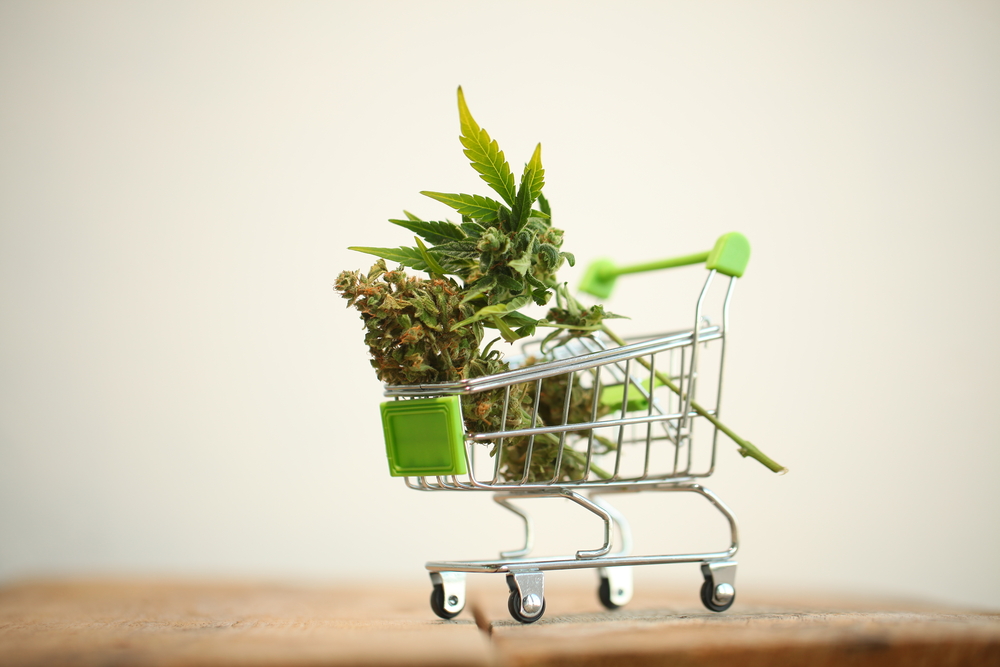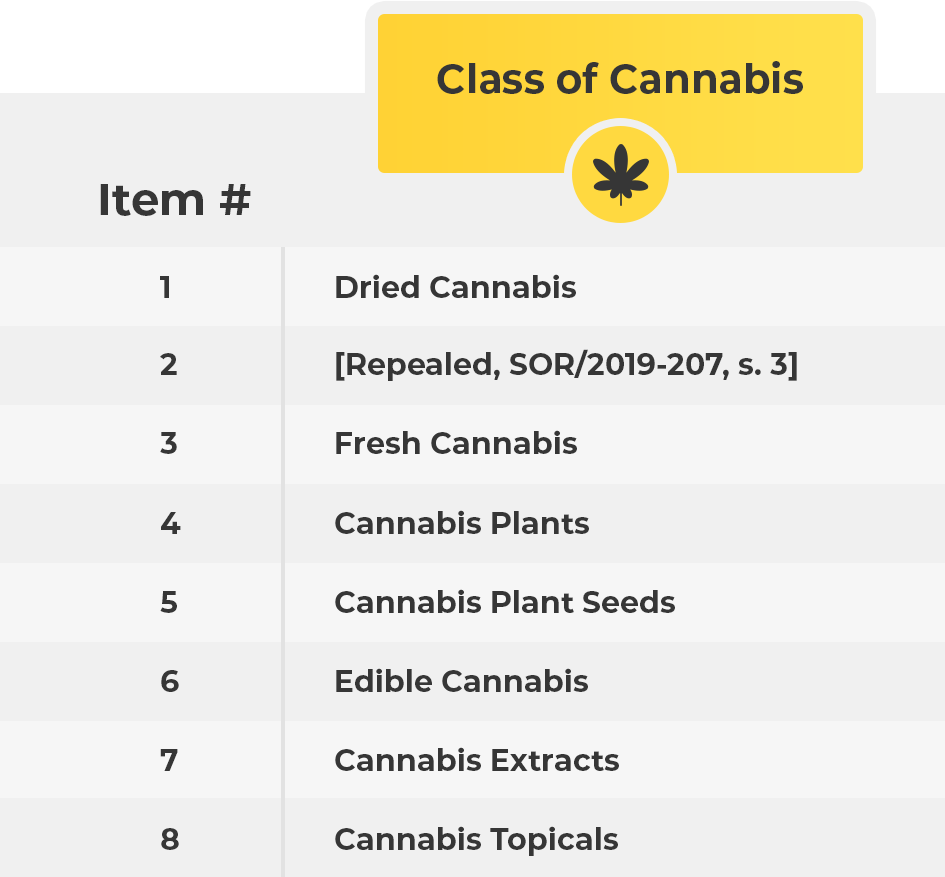The Sales Constraint for Micro and Standard Cultivation Licenses

Approximately 70% of all product sold in Canada at the present time is dried flower or their derived products such as pre rolls. The 260 Canadian Cannabis Cultivation licenses (October 6, 2021) that produce this product cannot, according to the Cannabis Regulations sell this directly to the provincial liquor boards.
They are required to either obtain a processing license or in the alternative sell their product via a licencee that has a processing license and pay up to or more than 15% of their margin to the LP.
Analysis of Health Canada’s Published Processing Licence Holders
The table below is an analysis of Health Canada’s published list of licence holders under the Cannabis regulations comprising all cultivators and processors as of October 6, 2021.

The 86 Standard and 174 Micro Cultivation licence holders with no processing and sales amendment (sales license) cannot sell dried flower or fresh cannabis to the Provincial Liquor Boards, but only through a processing license. Notwithstanding that these cultivation licencees, can if granted a medical sales license sell directly to registered patients if granted a medical sales license.
Notwithstanding, that s. 11 of the Cannabis Regulations (Cultivation Licenses—Authorised Activities”) specifically provides “to sell Cannabis” BUT “subject to other provisions of these Regulations”.
The cultivation license issued by Health Canada provides that the licensee can sell its products in accordance with s. 11.5 of the Cannabis Regulations that is:
“To sell and distribute cannabis plants and cannabis plant seeds, that are cannabis products, to (i) a holder of a licence for sale, or (ii) a person that is authorized under a provincial Act referred to in subsection 69(1) of the Act to sell cannabis.”
At first glance the ordinary interpretation of s. 11.5 would appear to afford the opportunity of the Cultivation Licencee the opportunity to sell Cannabis flower as a part of the Cannabis Plant?
However, Section 2 of the Cannabis Regulations defines Cannabis Product as:
“Cannabis product means cannabis of only one of the classes set out in Schedule 4 to the Act…”
Schedule 4 to the Cannabis Act provides a table which lists the following:
Classes of Cannabis That an Authorized Person May Sell

Important to note: the Cannabis “Plant and seeds” are specifically defined in the schedule—which means in turn, that the dried Cannabis (cannabis flower) is not a part of the “Cannabis Plant”.
Therefore, although s. 11. 1 of the Cannabis Regulations authorizes the propagation of the Cannabis Flower and its sale, the follow-on provisions of s. 11. 5. c of the Cannabis Regulations mandate that the cultivation license cannot sell what it is authorized to produce under these regulations unless they are plants and seeds.
A call to a provincial cannabis and liquor board to ascertain if it will purchase product from the cultivation license reveals that the Board will not engage in any dialogue with the Licensee unless it has a sales license issued by Health Canada.
The next hot button issue naturally is: what regulatory action can the cultivation licensee take to obtain firstly, a processing license and thereafter, a sale license so that it can sell its product to the province?
Further emphasis of this regulatory constraint is evidenced by Section 244 of the Cannabis Regulations with reference to processing license (specifically excludes plants and seeds) cultivation licencees sets out the procedure required for the 60 day notice to health Canada as it relates a new product registration. process.
This section further constrains the cultivation license from obtaining a sales license to sell to the provincial board, and indeed register a new product for sale. The cultivation licensee must therefore amend its license to obtain a processing license.
What does the amendment to the cultivation license require for the grant of a processing license by Health Canada?
Firstly, the Cannabis Regulations require that a quality assurance person (QAP) be employed. This person is a highly qualified person with a four year relevant science degree from a Canadian university of the equivalent, with experience in standard operating procedures (SOPs), and other qualifications such as HACCP I and II. It is possible to employ a QAP part time with a micro processing license.
Secondly, there will need to be a dedicated space in the facility for the processing activity to take place. The floor plan will need to be amended and also the room will have to be modified to meet the requirement of the Cannabis Regulations. Such as for example the HVAC where positive pressure is needed to prevent cross contamination through air flows into the room.
In addition to these requirements, there are also amendments to the existing documentation such as the original pre licensing report, addition of SOPs relative to a processing license, modifications to security apparatus and technology, modifications to the record keeping software and record keeping SOPs, and also a walkthrough video and still photos evidencing the new space and the adaptations to these rooms.
These are all additional costs and after the license amendment has been made on the CTLS there is lag time before the processing license is granted.
After the processing license is granted the cultivation/processing licensee has to file a “sales amendment” to the processing license on the CTLS to add the activity of sale of cannabis products to the processing license.
In addition, a minimum of two lots/batches of product is required to be produced and packaged and labelled for sale to a retail consumer. This has to be representative of the intended production capacity.
Thereafter an attestation signed by the Responsible Person in Charge has to be submitted attesting that the following requirements have already been met for the sale—in this case for “Dried Flower”:-
- The site continues to meet all applicable physical security requirements under Part 4 of the Cannabis Regulations. i.e., the site security requirements have been up graded for the processing activity.
- All Standard Operating Procedures (SOPs) are designed to ensure that production, packaging, labelling, distributing, storing, sampling, and testing of cannabis and anything that will be used as an ingredient, and that the two batches have also been tested in accordance Part 5 (Good Production Practices) and Part 6 (testing for contaminants and other requirements listed).
- In addition, SOPs have been established and implemented and will be available for inspection.
- The sanitation program has been updated to include processes associated with any new cannabis products being sought with this amendment.
- Validated methods were used to conduct the required analytical testing on the lots or batches submitted for this amendment.
- All applicable testing on the batched of product has been completed of the Cannabis Regulations.
- A minimum of two lots/batches of product is packaged and labelled for sale to a consumer at the retail level.
- The analytical test results submitted for this amendment will be available at the site for inspection.
- The quality assurance person will ensure that all cannabis is approved prior to being made available for sale.
- The immediate container(s) meets the requirements of a child resistant package under the Food and Drug Regulations and the product label(s) meets all applicable labelling requirements under Part 7 of the Cannabis Regulations.
- The quality assurance person will ensure that all cannabis is approved prior to being made.
- All applicable record keeping requirements under Part 11 of the Cannabis Regulations will continue to be met.
There are additional requirements and attestations if edibles, extracts, and tinctures are also processed under the sales amendment.
There is no Health Canada service standard time for the grant of the sales amendment so this, could take 3-4 months or longer.
Simultaneously or directly after filing the sales amendment a Notice of New Cannabis Product (“NNCP”) Registration is required to be filed under s. 244 of the Cannabis Regulations. The Health Canada “Notice of New Cannabis Product Guide” will assist in this process which lists additional requirements to the sales amendment such as photos of the product and when it is intended to be sold. Health Canada has a service standard for a NNCP grant of 60 days and therefore thee licensee cannot express an intention to sell the product in less than 60 days from the fling of the NNCP.
If your company has a cultivation license and intends to sell into the retail market, our team has the qualifications, experience, and skills to assist you in firstly obtaining the processing license and subsequently the sales license with a New Cannabis Product Registration, quickly, efficiently and at a reasonable cost with an easy payment plan.
As an alternative for filing the processing license, sales amendment and NNCP is to enter into a joint venture with an independent processing company for the sale of dried flower. One such example is Everest Biopharma International Ltd., a late-stage standard processing license applicant. By taking a small equity position the processing, packaging and labeling costs can be heavily discounted and the costs and delays of the various licensing amendments can be obviated. The scheduling of the joint venture partner can also be prioritized over other clients
If you need help with your cannabis micro or standard cultivation license? We've got you covered at Growth West. Reach out to our team of expert cannabis consultants today to see how we can get your cannabis business off the ground.
Critical Legal Background –The Cannabis Act & Cannabis Regulations
Authorized activities
- 11 (1) Subject to the other provisions of these Regulations, a holder of a licence for micro-cultivation or standard cultivation is authorized to conduct those of the following activities that are authorized by the licence:
- (a) to possess cannabis;
- (b) to obtain dried cannabis, fresh cannabis, cannabis plants or cannabis plant seeds by cultivating, propagating, and harvesting cannabis;
- (c) for the purpose of testing, to obtain cannabis by altering its chemical or physical properties by any means; and
- (d) to sell cannabis.
The following was also used for reference to the activity “to sell cannabis” in accordance with subsection 11 (5 ) of the Cannabis Regulations:
Subsection 11 (5 ) of the Cannabis Regulations provides that “ A holder of a licence for micro-cultivation or standard cultivation whose licence authorizes the sale of cannabis is authorized to conduct the following activities”: 11(5) c “to sell and distribute cannabis plants and cannabis plant seeds, that are cannabis products, to (i) a holder of a licence for sale, or (ii) a person that is authorized under a provincial Act referred to in subsection 69(1) of the Act to sell cannabis.”
- Subsection 69(1) of the Cannabis Act
A person may possess, sell, or distribute cannabis if the person is authorized to sell cannabis under a provincial Act that contains the legislative measures referred to in subsection (3).
- Section 2 of the Cannabis Act “cannabis means a cannabis plant, and anything referred to in Schedule 1 but does not include anything referred to in Schedule 2 (cannabis).”
“Schedule 1 of the Cannabis Act. Any part of a cannabis plant, including the phytocannabinoids produced by, or found in, such a plant, regardless of whether that part has been processed or not, other than a part of the plant referred to in Schedule 2 2 Any substance or mixture of substances that contains or has on it any part of such a plant 3 Any substance that is identical to any phytocannabinoid produced by, or found in, such a plant, regardless of how the substance was obtained.”
- Section 2 of the Cannabis Regulations
“Cannabis product means cannabis of only one of the classes set out in Schedule 4 to the Act — or a cannabis accessory that contains such cannabis — after it has been packaged and labelled for sale to a consumer at the retail level. It does not include (a) cannabis that is intended for an animal; (b) a cannabis accessory that contains cannabis that is intended for an animal; or (c) a drug.
- Schedule 4 to the Cannabis Act
SCHEDULE 4 Classes of Cannabis That an Authorized Person May Sell Item Class of Cannabis 1 dried cannabis, 3 fresh cannabis, 4 cannabis plants, 5 cannabis plant seeds, 6 edible cannabis, 7 cannabis extracts, 8 cannabis topicals .
